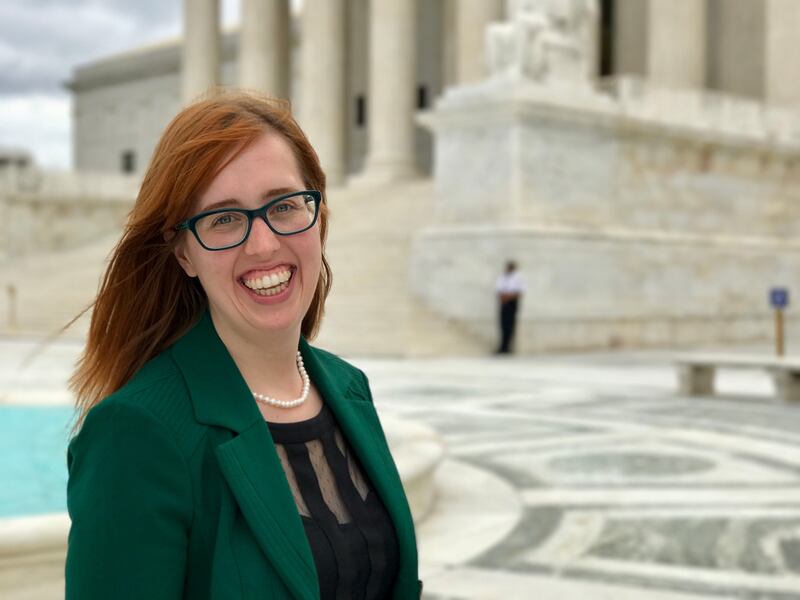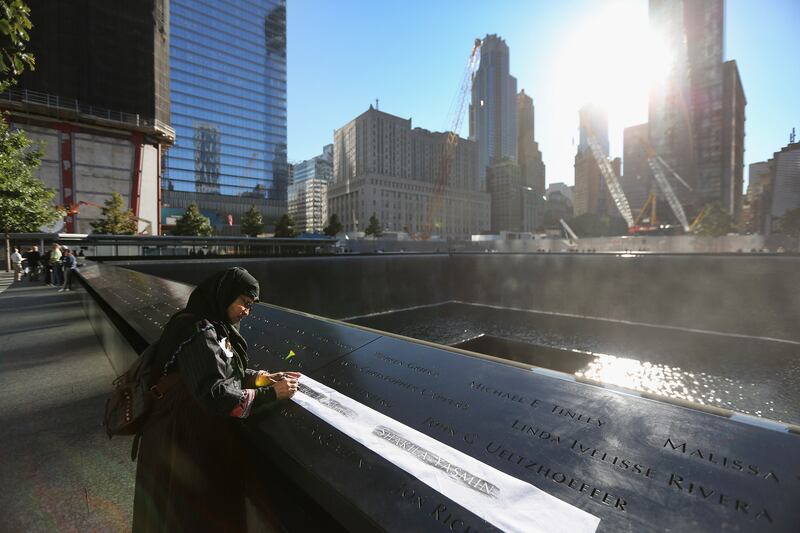SALT LAKE CITY — After Sept. 11, federal officials ramped up government surveillance of the Muslim community, expanding the terrorist watchlist and infiltrating mosques. Last week, a U.S. district judge said these efforts went too far.
“This is the most significant victory against government surveillance of the Muslim community since 9/11,” said Carolyn Homer, a staff attorney with the Council on American-Islamic Relations who worked on the case.
The world today marks the anniversary of the terrorist attacks on New York and Washington, D.C. with remembrances of all who perished, including in a field in Pennsylvania where hero passengers brought down a plane seized by terrorists. It’s also a time to measure the unintended consequences of the attacks.
Last week’s ruling will bring more transparency to the government’s future surveillance efforts. However, it will do little to heal distrust caused by the officials’ actions over the past 18 years, Homer said.
“The government has coded terrorist to mean Muslim,” Homer said. “The cultural melding of those two identities causes enormous discrimination against the Muslim community.”
The discrimination, in turn, has complicated Muslims’ relationship with government officials, including at the local level, she added. Muslims sometimes won’t report hate crimes or other incidents because they fear police interference, as the Deseret News reported in 2017.
The Council on American-Islamic Relations and other civil rights organizations are working to expose and address this broader fallout from 9/11, both in the courtroom and outside it, Homer said, noting that more Americans should get involved.
“We should push back against government abuses and hate in general,” she said.
This week, the Deseret News spoke with Homer about the Muslim community’s concerns with ongoing government surveillance, her organization’s recent court victory and what non-Muslims can do to help those who feel unfairly targeted because of their faith.
This conversation has been edited for length and clarity.
Deseret News: Following Sept. 11, the federal government expanded existing surveillance programs and created a single, new database of suspected terrorists maintained by the Federal Bureau of Investigation. How did these changes affect the Muslim community?
Carolyn Homer: Anyone on the watchlist is subject to extremely heightened scrutiny at airports and land borders. For example, at the airport, you can’t print off your boarding pass on your own. You have to go to an airline agent, who will call the FBI to get permission to print the pass, which is marked to reflect that the FBI thinks you’re a suspected terrorist.
At the security gate, sometimes the entire line gets shut down, or you’ll get pulled into a separate room and subjected to invasive pat-downs and searches.
When you get through security, sometimes a federal agent will tail you to document your every move. Local law enforcement might even meet you at your destination and ask you to exit the plane first.
In general, someone on the watchlist will fail basically every form of government background check. You won’t be able to be employed by the government, get a credential for driving a semi truck or work in a chemical plant.
DN: How did the watchlist play into the ruling last week?
CH: What the judge said last week is that, even though the government refuses to confirm or deny whether these 23 individuals (who brought the case) are actually on the watchlist, the harms they’ve suffered are strong enough to give them standing to sue.
Additionally, he ruled that the criteria used by the government and FBI to add people to the watchlist is unconstitutionally arbitrary and vague. Under the current standards, people can be labeled suspected terrorists simply for studying abroad in the Middle East or learning Arabic.
Moving forward, the judge said the government needs to notify Americans who are on the list or who have ever been on the list and give them the opportunity to challenge that placement.
The bottom line is that the watchlist, as presently constituted, is unconstitutional. The judge gave the government 30 days to explain what they’re going to do now.

DN: Beyond affecting travel or employment opportunities, how has widespread surveillance changed the Muslim community’s relationship with the government?
CH: If you walk into a room of Muslim individuals, every single person there either has been on the watchlist and a victim of government profiling or they have close friends and family members who have been.
It’s to the point where, at some level, they just expect to be treated like this.
There’s a lot of distrust of the government. For years, the government has been trying to infiltrate mosques in order to spy on Muslims instead of protect them.
DN: Many Americans would argue sacrifices need to be made in order to prevent future terrorist attacks. What would you say to them?
CH: It’s a fundamental, constitutional principle of the United States that we do not punish people without actually convicting them of a crime.
These individuals (on the watchlist) are innocent. They are Americans. They often have no idea they’re even on a list or why they were added. They have no opportunity to challenge the government’s claims about them.
This situation is not an acceptable trade-off for national security.

DN: Groups like the Council on American-Islamic Relations and the ACLU were upset about expanded surveillance and the watchlist from the beginning, so why are lawsuits still ongoing?
CH: At first, the government wouldn’t really take any action against you unless you met a specific, heightened criteria. But around 2010, the size of the list doubled and every single person on it began to experience adverse effects.
Lawsuits began as the list exploded in size and as internal government watchdog reports exposed extremely high error rates. There have been lots of instances of the government watching the wrong person because they had a similar name as someone else. The lawsuits were further aided by 2014 leaks of internal government watchlist documents.
DN: Why was last week’s victory so meaningful?
CH: It vindicated what Muslim Americans have been saying since then (Sept. 11), which is that they’re being systematically targeted and provided no opportunity to challenge the FBI’s designation of them as suspected terrorists.
DN: You’re not a Muslim, yet you’ve chosen to work for a Muslim organization and defend this faith community from government discrimination. What advice do you have for other non-Muslims who want to help?
CH: Many white, Christian Americans are clueless about how the government targets people of color and religious minorities.
Whenever the Muslim community or any community tells you about problems like the watchlist, you should listen to them and speak out against it.
This shouldn’t be a fight that a marginalized community has to bear alone. All Americans should be united in standing up against injustice.


